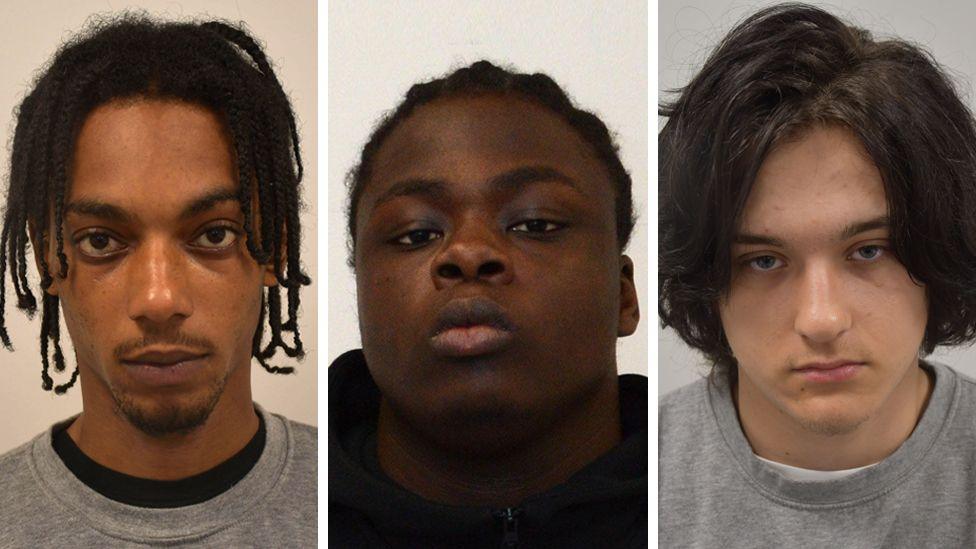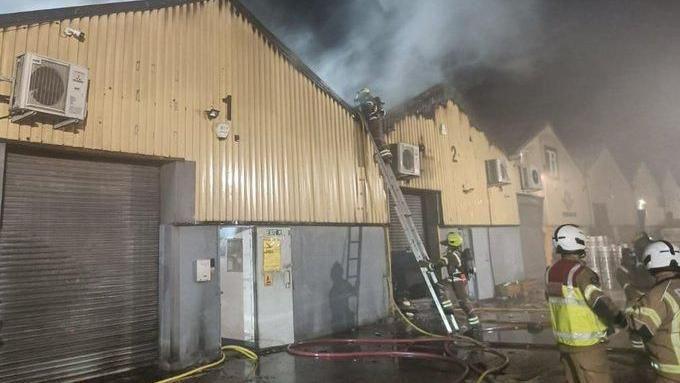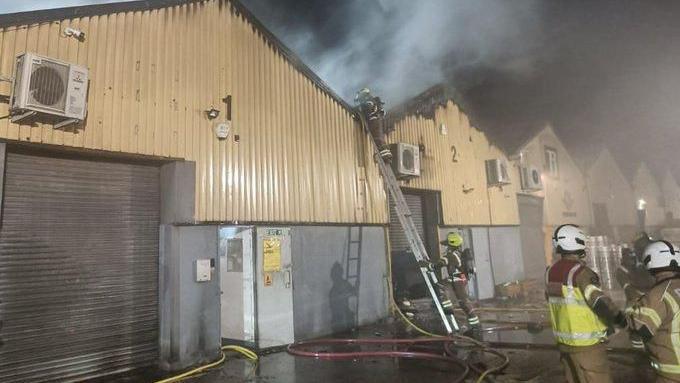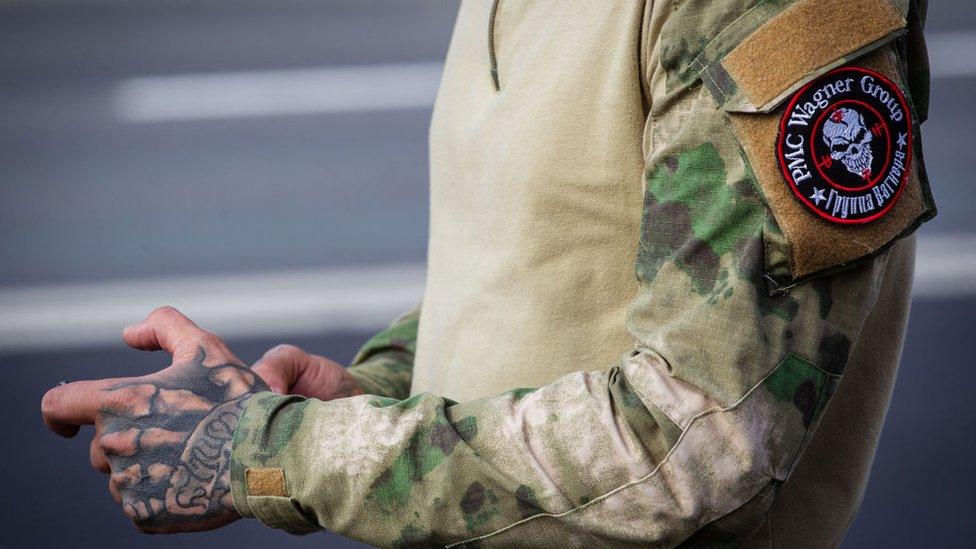Three men found guilty of Wagner-linked arson attack in London

Left to right: Jakeem Rose, Nii Mensah and Ugnius Asmena
- Published
Three men have been found guilty of an arson attack on a London warehouse linked to Ukraine on behalf of Russian mercenary group Wagner.
Jakeem Rose, 23, Ugnius Asmena, 20, and Nii Mensah, 23, were found guilty at the Old Bailey of aggravated arson with intent to endanger life after the blaze at the unit, which sent aid and internet satellite equipment to Ukraine.
The attack was orchestrated by Dylan Earl, 20, and Jake Reeves, 23, who had already admitted aggravated arson on behalf of the Wagner Group.
Around £1m-worth of damage was caused in the attack on the warehouse in east London last year, the Old Bailey heard.
A fourth man, Paul English, 61, of Roehampton, was cleared of wrongdoing.
The Wagner group is a private military organisation that acts on behalf of the Russian state, which the UK government has proscribed as a terrorist group.
Mensah, of Thornton Heath, and Rose, of Croydon, were captured on CCTV and a livestream video on Mensah's phone setting the warehouse - which housed Ukrainian-owned businesses - on fire.
The livestream on FaceTime to Earl and Reeves showed petrol being thrown onto the warehouse unit doors, setting them alight.
Eight fire crews with 60 firefighters were called to the Cromwell Industrial Estate in Leyton after the blaze broke out shortly before midnight on 20 March 2024.
On the night of the attack, the jury heard a lorry driver parked nearby had bravely but unsuccessfully attempted to put out the fire.
The court heard that as they fled, Rose dropped a large knife on which his DNA would be found.
Mensah later messaged Reeves, also of Croydon, to say "L9 (Rose's nickname) left his Rambo at the scene".
The warehouse was targeted because it shipped humanitarian aid and goods to Ukraine, including Starlink satellite equipment - crucial for Ukrainian troops.
"It is clear that this was a targeted attack given the connection the warehouse had to Ukraine in shipping aid and other goods," David Cawthorne, unit head of the Crown Prosecution Service's counter-terrorism division, said.

Damage caused by a fire at an industrial unit in Leyton
During the trial, the court heard that Earl had told a contact in the Wagner Group he met on Telegram that he was keen to carry out a series of "missions", of which the warehouse fire was only the first.
More plots were discovered, involving further arson attacks on a restaurant and wine shop in Mayfair, west London and to kidnap its owner, a multi-millionaire and Russian dissident Evgeny Chichvarkin.
Messages recovered from Earl's phone showed that reconnaissance had been carried out and discussions were ongoing about using explosives in the planned attacks.
Mr Chichvarkin was described in court as a "high-profile Russian dissident and refugee" who has been vocal in his criticism of Russian President Vladimir Putin and the war in Ukraine. His two Mayfair businesses collectively employed 200 people and were valued at more than £30m.
Earl, of Elmesthorpe in Leicester, is the first person to be convicted of offences under the National Security Act, passed by Parliament in 2023, to deal with the increased risk of hostile state activity.
A fifth man, Ashton Evans, of Newport, was found guilty of one count of failing to disclose information about terrorist acts, but cleared of failing to tell authorities about the warehouse arson.
A sixth man, Dmitrijus Paulauskas, of Croydon, was found not guilty of two counts of failing to disclose information about terrorist acts.
"This case is a clear example of an organisation linked to the Russian state using 'proxies', in this case British men, to carry out very serious criminal activity in this country on their behalf," head of the Met's Counter Terrorism Command, Commander Dominic Murphy, said.
"I hope these convictions send a strong warning of the very serious consequences of committing offences on behalf of a foreign country."
- Published4 June

- Published6 September 2023
